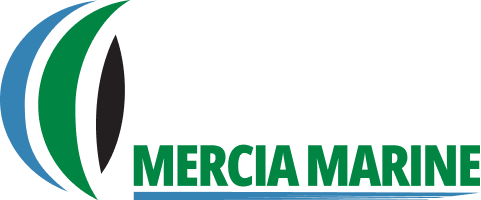Boat Insurance – Avoiding claims whilst afloat
Factors such as fire safety, passage planning, crew competency, maintenance, moorings & lay-up and heavy weather can all be planned for to reduce the probability of a claim spoiling your boating enjoyment. This boat insurance related article looks at this and other claim avoidance techniques to enhance the long-term enjoyment of your boating.
Whilst you can be safe in the knowledge that your policy will protect you if needed there are many incidents that lead to boat insurance claims are that are entirely avoidable. Many claims are caused, directly or indirectly, from avoidable issue such as human error, poor planning or a simple lack of boat maintenance. Therefore we have put together this brief article with some basic tips to keep you and your vessel safe.
Fire Safety
Remember fires don’t just happen at home! Fires happen on virtually all types of vessel where there are engines or electrical equipment and it’s the last thing you want when afloat. Here are some simple, cheap and common sense avoidance measures.
- Have a fire safety plan which indicates the location of the fire-fighting equipment on board.
- An appropriate number of fire extinguishers should be available on board depending on the size of the vessel. Also ensure that you have the appropriate types of fire extinguishers to suit the potential types of fire (namely foam, water, powder and carbon dioxide).
- Extinguishers should be regularly checked, including pressures and expiry dates and annual maintenance should be carried out by a competent service provider
- Small fires very regularly originate in the galley and good housekeeping much of which is the same as you’d use at home go a long way in avoiding such incidents.
- If used, gas bottles should be kept in a well ventilated space with the valves turned off when not in use. Piping and connectors should be checked for wear and tear and for corrosion and replaced if necessary.
Passage Planning
As the saying goes, if you fail to plan, you plan to fail. So plan ahead! Here are a few tips about planning your safe passage;
- It is very important to plan your passage before setting off and consideration should be given to the type of vessel, deepest draft, engine capabilities, expected weather and tides and any limitations of the crew.
- Any navigational hazards along the route should be identified and contingency plans should be at hand in case of engine failure or other unforeseen events
- Navigational charts should be checked for how up to date they are and of the largest scale possible. Electronic charts should have the latest updates and corrections installed.
- Consider and be aware of the local navigational rules and restrictions that may be in force.
Crew Competency
- The person in charge of the vessel should be both suitably experienced and qualified, as well as having a good understanding of the vessel’s capabilities and limitations.
- Whilst under way the vessel should have a sufficient number of crew with sufficient competence for the intended passage including use of all safety equipment and emergency signalling aids.
Maintenance
- Regular and adequate maintenance of machinery is of the utmost importance. Vessels should have a specific service and maintenance schedule which should be adhered to and reviewed and updated as necessary.
- Machinery space should be kept clean and free from oil leaks. If oil is noticed in the bilges then the source of the leak should be traced and promptly repaired.
- A safety checklist and routine should be implemented that consists of testing and maintenance tasks associated with all safety and emergency equipment on board including items like fire pumps, fire hoses, bilge pumps, alarms and emergency lighting.
Moorings & Lay Up
- Whilst laid up or stored ashore, ensure precautions are taken to avoid damage due to exposure to high winds, snow and storms.
- Ensure ropes are in good condition and not excessively worn or chaffed.
- Mooring equipment like shackles, bits and cleats should be inspected to ensure they are in good condition and can take the expected load (especially in bad weather)
- Sails and Masts should be dropped if the yacht is not expected to be used for an extended period to reduce windage effects
- Plan for worst case scenarios. For example, take consideration of the worst expected weather conditions during the mooring or lay-up period and take necessary precautions such as doubling the ropes and checking all openings are closed.
Heavy Weather
- Check the weather forecasts and be cautious of the possible effects of bad weather on your vessel at all times, whilst in use, moored or laid up.
- Ensure that the weather forecast is taken into account when planning any passages and set weather limits, taking wind speeds and sea conditions into consideration.
- In case of imminent heavy weather, options to consider should include heading to a port of refuge. Remember that sometimes heading out to sea may be the better option than to approach shore during a storm.
- Make sure all external openings are bolted and weather or watertight as required.
- Ensure loose objects are secured against movement during rolling and pitching of the vessel… avoid bringing aboard/ buying breakables wherever possible.
This boat insurance related article is provided with good intentions only and cannot be considered comprehensive, if in doubt always take professional advice.
We merely hope this article assists you in the enjoyment of your travels afloat and that if you ever need an insurance quotation you will consider us.

